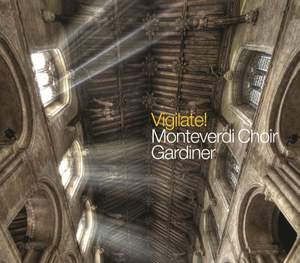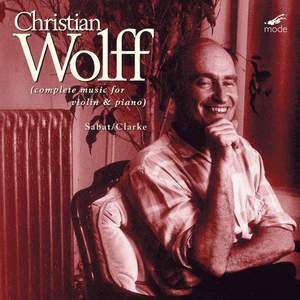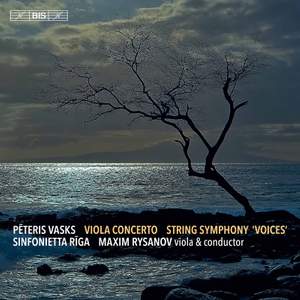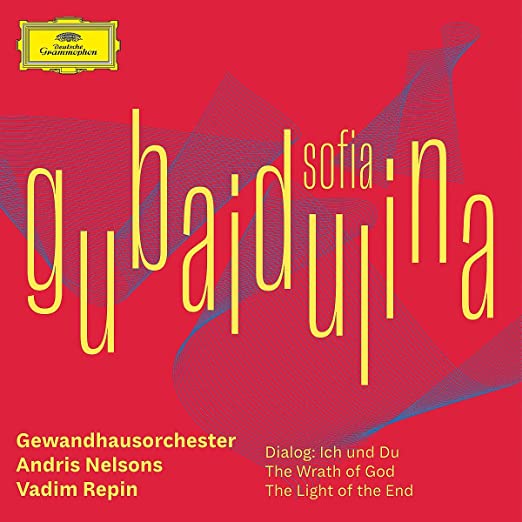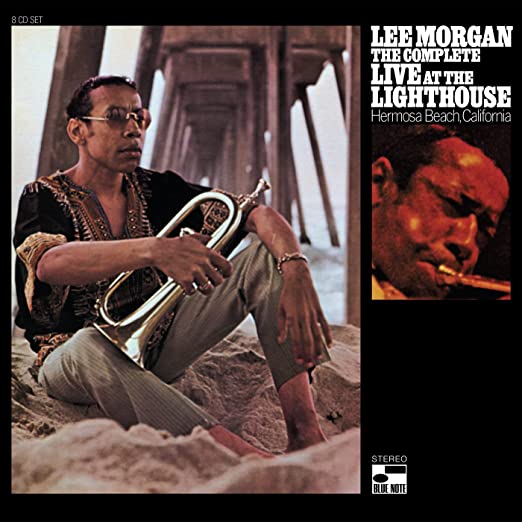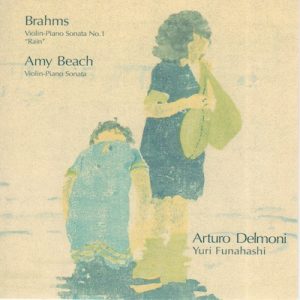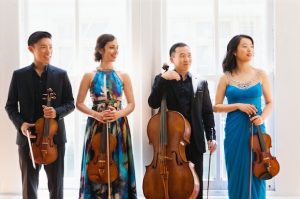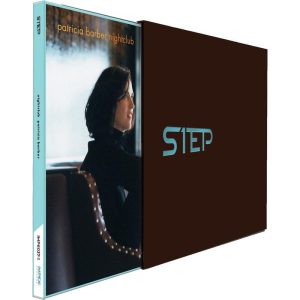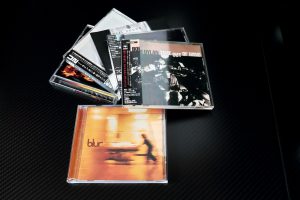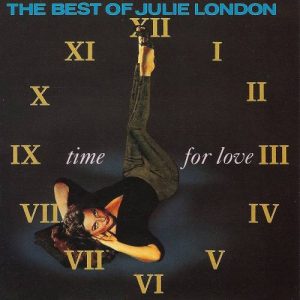…all descriptions of music are quite worthless & rather unpleasant; they are apt to be hysterical & to say things the people will be ashamed of having said afterwards. V. Woolf, Diary.
Vigilate. English Polyphony in Dangerous Times. Monterverdi Choir, John Elliot Gardiner. Soli Deo Gloria SDG 720.
It isn't often we get to hear the Monterverdi Choir without the English Baroque Soloists—never until now in this singular repertoire. Byrd, Tallis and their English contemporaries. It's usually the professional a cappella ensembles like the Tallis Scholars who have dominated this field for a generation or more.
I will listen to anything John Eliot Gardiner is involved in. To me, his complete edition of the Bach cantatas and masses are the truest ones. And no surprise here, his choir is naturally warm, clear, and unaffectedly gorgeous. I say unaffectedly because the Tallises strive for and generally achieve a conspicuously etherial quality that we have learned to love, while conceding to ourselves that it could sometimes be a little too much of a good thing. Gardiner's people just (!) sing. And because they are so good and well guided, this is enough. Perfect even. They are the perfect instrument for this music. We feel more of ourselves being reached than our souls and spirits. We feel what our souls are grounded in. Even those of little or no faith find themselves in the reality of the part of our emotional selves that faith, not to mention cathedrals, is constructed upon.
The world of English renaissance music is a world that once entered is not easily left behind. This recording is already six years old. How did I miss it?
Christian Wolff, Complete Music for Violin and Piano. Marc Sabat, violin; Stephen Clarke, Piano. Mode Records 126.
Out on the periphery of the musical world, far from Yeats’ ‘center that cannot hold’ and outside Eliot’s ‘tradition, anything goes, right? For me a few things go out there, but not too many. For example, I find the better known Morton Feldman, a composer often associated with today's subject, unlistenable. For me, the king of out there is Christian Wolff (b. 1934) and even he doesn't always go. He's wonderful in Two Orchestral Pieces (New World Records). And on this album, especially in "Pebbles," equally so.
Judging music that we call avant grade is a highly subjective matter. I think lovers of music are better at it than students of music. Music lovers are more concerned with whether something works than how it does, or doesn't. Here a piano and a violin speak to each other, speak to us, sometimes singly, sometime together. They speculate, propose phrases, dispute, collaborate. But because they are wonderful musical instruments and not people, we don't have to listen to ideas and arguments, just to the flavor, color, and play of the conversation. It as if we are visitors from another world listening to cerebrally untreated reality.
This is more engaging than I make it seem. As I listen, I am watching a bright red cardinal and a brilliant yellow gold finch negotiate their ways around each other on our bird feeder; and their connection to the music is unmistakable. Their colors and movements are enough… they are everything.
Péteris Vasks, Viola Concerto; Voices, Symphony for Strings. Sinfonietta Rîga. Maxim Rysanov, viola and conductor. World Premier Recording. BIS 2443. SACD.
Unabashedly modern romantic Lativian composer Péteris Vasks (b. 1946) carries on. His Viola Concerto (2014-2015) is bolder and more openly and complexly emotional than we are accustomed to hearing him, but it remains squarely within his sonic and thematic universe. He is a major figure of the Eastern European elegiac school of contemporary music, and we are surprised it has taken him this long to reach the viola, an instrument ideally suited to the romantic melancholy of his muse. The Concerto is dedicated to Ukranian-British soloist and conductor Maxim Rysanov, a specialist in new music, especially of Eastern Europe, notably by the late Georgian composer, Giya Kanchelli. Vasks plays to both Rysansov's virtuosic and lyric skills in this work and, we suspect, draws on his established musicianship.
Symphony for Strings, Voices (1991), the companion work on the album, is more mainstream Vasks, a fact that will disappoint no one. Modern (chromatic, restive) impressionism at its least ground-breaking but emotionally expressive best. As we move from Voices of Silence to Voices of Nature, we feel the atmosphere grow more intense and less forgiving. Composed during a time when the Latvian people were literally barricading their streets against Soviet tanks, the work finally comes to a stern conclusion with Voices of Conscience.
Systems used for this audition: Resolution Audio Cantata 3.0 CD player w/BlackJack power cord; Gilbert Yeung Design solid state NSI "G" integrated amplifier with Jean Marie Reynaud Voce Grande loudspeakers; and Audio Note Tonmeister Meishu Silver Signature integrated 300B tube amplifier with Audio Note K/SPx SE loudspeakers; Crimson interconnects and speaker cable; Mapleshade Samson equipment rack.
Bob Neill, a former equipment reviewer for Enjoy the Music and Positive Feedback, is proprietor of Amherst Audio in Western Massachusetts which sells equipment from Audio Note (UK), Gilbert Yeung Design (formerly Blue Circle) (Canada), Jean Marie Reynaud (France), and Resolution Audio (US).




